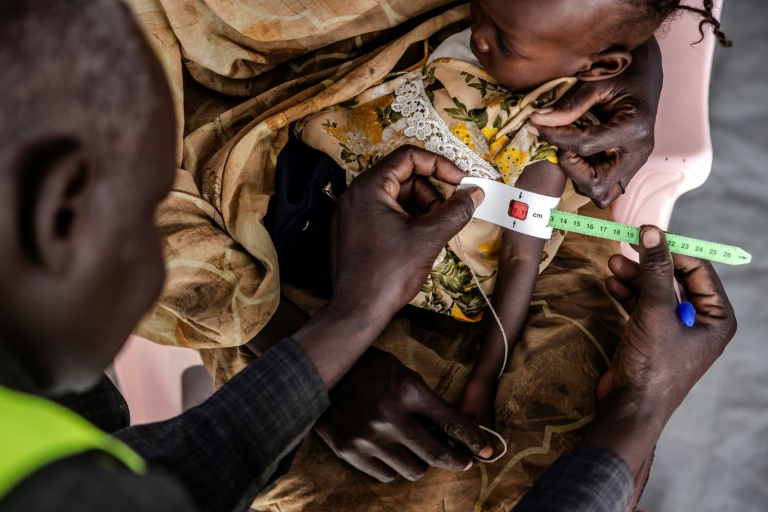More than half of Sudan's population faces severe “acute food insecurity” and the situation is made worse by the country's devastating war, a United Nations report cited on Thursday said.
Sudan has been in a state of war since fighting broke out in April 2023 between forces loyal to army commander Abdel Fattah al-Burhan and the paramilitary Rapid Support Forces led by his former deputy commander, Mohamed Hamdan Daglo.
Conflict in the northeast African country of 48 million people has left tens of thousands dead, forced millions to flee and sparked one of the world's worst humanitarian crises.
“Fourteen months into the conflict, Sudan faces the most severe food insecurity in its Integrated Food Security Phase Classification (IPC) history,” the report said.
The report said the crisis affects “around 25.6 million people”, of which 755,000 are in dire straits and a further 8.5 million are in “emergency situations”.
Advertisement – Scroll to continue
The report noted that compared with the previous figures released in December last year, there has been a “significant and rapid deterioration in the food security situation,” with the number of people facing severe food insecurity increasing by 45 percent.
“The conflict has not only caused large-scale displacement and disrupted supply routes, but has also severely restricted access to essential humanitarian assistance, exacerbating an already dire situation,” the IPC said.
The report also points out “grossly dysfunctional health care services, polluted water and poor sanitation.”
Advertisement – Scroll to continue
The IPC report was released a day after UN experts accused Burhan's Sudanese army and Daglo's Rapid Aid Force of using starvation as a weapon of war.
“Both the SAF and RSF use food as a weapon, starving civilians,” said the experts, including the Special Rapporteur on the right to food.
He also said foreign governments providing military support to both the army and the RSF are “complicit” in war crimes.
Advertisement – Scroll to continue
Both sides have been accused of attacking activists and aid workers, looting or obstructing aid, and targeting infrastructure.
The IPC said on Thursday that 14 regions of the country, home to millions of people, were “at risk of famine”, which it said could occur between June and September 2024.
These areas, which include the besieged El Fasher in North Darfur, parts of the capital Khartoum and major displacement centres in Darfur and South Kordofan, are also the areas most affected by the direct fighting.
Advertisement – Scroll to continue
Several islands, including Tuti Island in the heart of Khartoum, have been under siege by both sides for more than a year.
Aid agencies and the United Nations have repeatedly warned that as the fighting escalates, an already severe humanitarian crisis could worsen and more people could be forced to flee.
Thousands were forced to flee the southeastern town of Sennar after RSF attacks on nearby Jebel Moya this week, witnesses told AFP, raising fears the front line was shifting again to the south and east.
Sennar state is a key state already housing more than 500,000 displaced people and connects central Sudan with the military-controlled south and east, where hundreds of thousands more are fleeing.
Advertisement – Scroll to continue
The IPC report “confirms what humanitarian workers and civilians on the ground already know: famine is looming,” said Chada Doyen McKenna, director of the humanitarian organization Mercy Corps.
“History has shown that by the time a famine is officially declared, people are already dying at an alarming rate,” she added.
Aid workers have long warned that difficulties in accessing data mean they cannot declare a full famine, but famine is already claiming lives across the country.
The World Food Programme said on Thursday that displaced persons centres in Port Sudan, the country's new de facto capital under military control, were also packed with “babies with stick-thin arms”, indicating “dangerously high levels of malnutrition”.
Eddie Lau, the WFP's country representative, said it was still possible to “avoid outright famine” if agencies were given “unrestricted access” and sufficient funding.
By June, the UN's $2.7 billion humanitarian aid plan for Sudan was only 17.3 percent funded.



